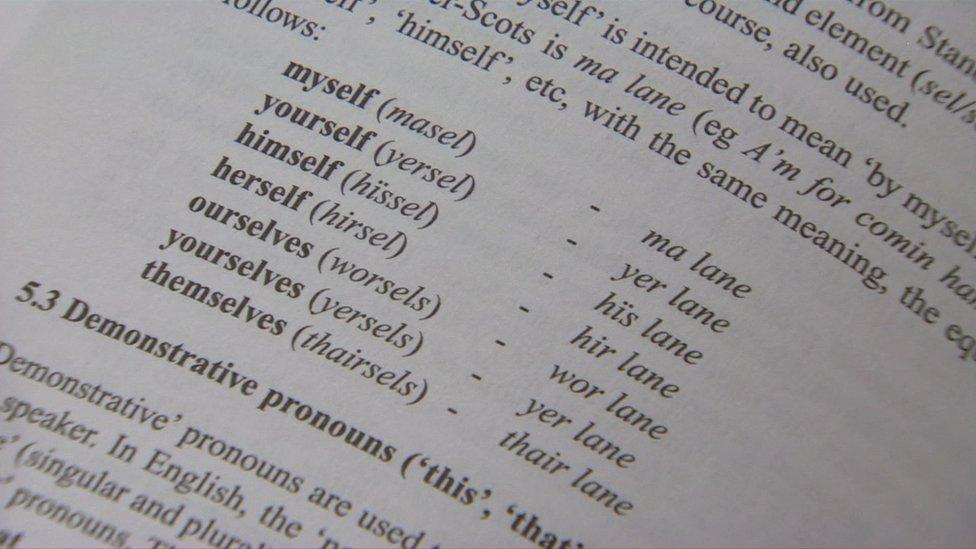Cultural markers to identify Ulster-Scots community
- Published
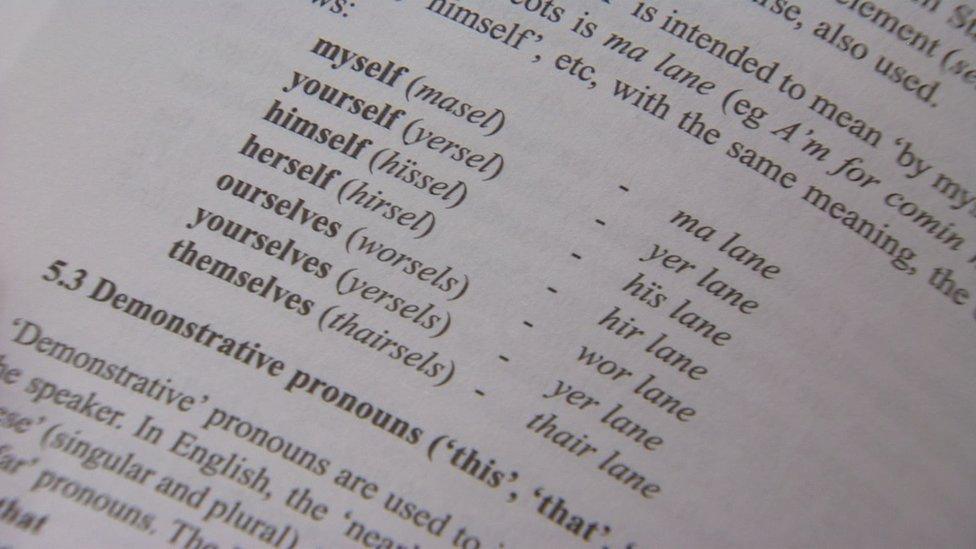
The Ulster-Scots Agency is drawing up cultural markers which could identify someone as a member of the Ulster-Scots community.
It follows a commitment in the New Decade, New Approach deal to recognise Ulster-Scots as a "national minority".
The Ulster-Scots language has been part of life in Ireland since Scots planters arrived in Ulster in the 17th Century.
Cultural markers are characteristics that might identify Ulster-Scots even if they do not speak the language.
The New Decade, New Approach deal, which led to the restoration of devolution at Stormont in January 2020, included new laws and commitments for Ulster-Scots and the Irish language.
An Irish and Ulster-Scots language translation service for public bodies has been established but the majority of those commitments have not yet been enacted.
According to the Department for Communities, more than one in every 10 people in Northern Ireland can understand Ulster-Scots while 5% of adults can speak it.
'Positive step forward'
Ulster-Scots is recognised as a minority language under the European Charter for Regional and Minority Languages.
That places responsibilities on the Northern Ireland Assembly to protect and promote the language.
But the New Decade, New Approach agreement also included a commitment to "recognise Ulster-Scots as a national minority under the Framework Convention for the Protection of National Minorities".
The Ulster-Scots Agency has welcomed that.
"This is a positive step forward because it will enhance the recognition of and protection for Ulster-Scots identity in a holistic way, recognising all aspects of Ulster-Scots language, heritage and culture," the agency told BBC News NI.
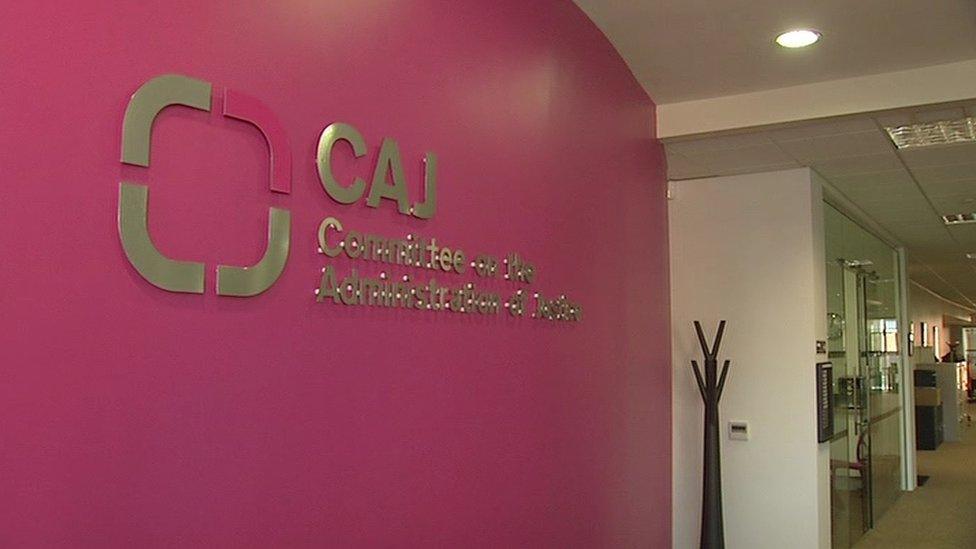
The CAJ says it is concerned that the move to create cultural markers could "sectarianise" Ulster-Scots
"It complements the protection provided for the Ulster-Scots language in the European Charter for Regional and Minority Languages but crucially the protection will now extend to all aspects of Ulster-Scots identity rather than language alone as at present."
As a result, the agency is drawing up "identity markers" which could identify someone as a member of the Ulster-Scots community.
'Represent their identity'
"The cultural markers have not yet been agreed but are likely to cover things like Scottish origin, language/literature, religion, philosophy and political outlook, festivals, music, dance, sport and food," said the agency.
The agency said it would "equality screen" and consult on any new policy.
"It is essential that the Ulster-Scots community has the opportunity to shape and inform our policy position so that they will be comfortable that the identity markers we articulate are an appropriate representation of their cultural identity," it said.
However, Daniel Holder from the Committee on the Administration of Justice (CAJ) said he was worried the move could "sectarianise" Ulster-Scots.
"Essentially what that would do would be to change the parameters of who is an Ulster-Scot and link it really politically with one particular section of the community and to essentially exclude those who wouldn't fit within those parameters and that would be quite a serious concern," he said.
"There are lots of people with Ulster-Scots identity or Ulster-Scots affinity but that doesn't necessarily mean of course that that community wishes to be designated or accepted as a separate ethnic group.
"There's very little evidence of that.
"That seems more an argument by at best a political fringe rather than something that has broad based support."
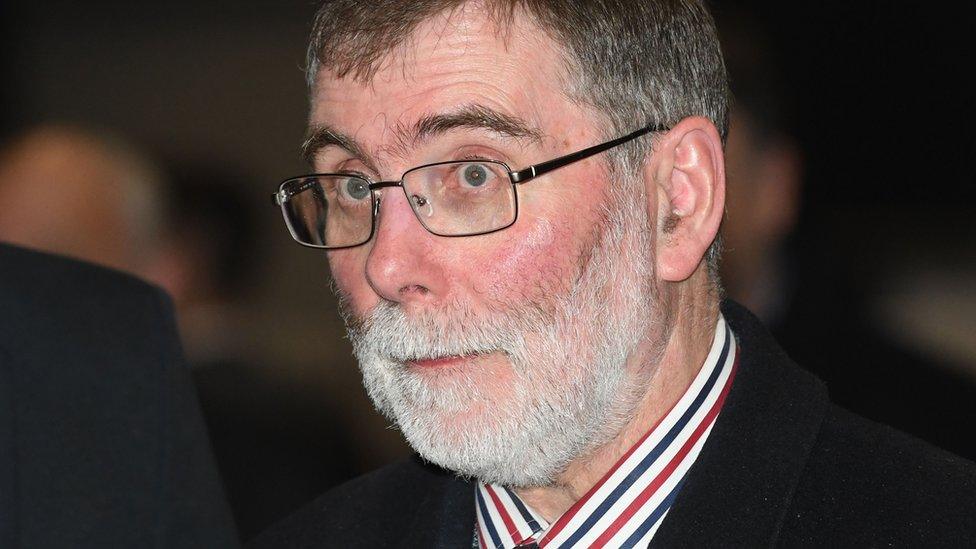
Nelson McCausland says people do not have to be of Presbyterian background to be an Ulster-Scot
But former culture minister and ex-DUP MLA Nelson McCausland rejected that analysis.
"I'm interested in the fact that CAJ actually has concerns in relation to Ulster-Scots because over the past 25 years we've seen very little evidence of their interest, never mind their concerns about Ulster-Scots," he said.
'Don't have to be Presbyterian'
"It is a total misunderstanding of the situation on their part.
"The parallel is with Irish.
"You don't have to be a particular religion to be Irish.
"Irish has been heavily shaped by Roman Catholicism in the same way as the Ulster-Scots tradition has had a strong Presbyterian influence within it but you don't have to be a Presbyterian to be an Ulster-Scot.
"I'm not a Presbyterian but I'm a proud Ulster-Scot.
"There are people who may not actually speak Ulster-Scots but they identify as Ulster-Scots, have an interest in dimensions of Ulster-Scots culture, be part of that community but maybe are only starting to learn the language or haven't learned it at all."
- Published17 June 2021
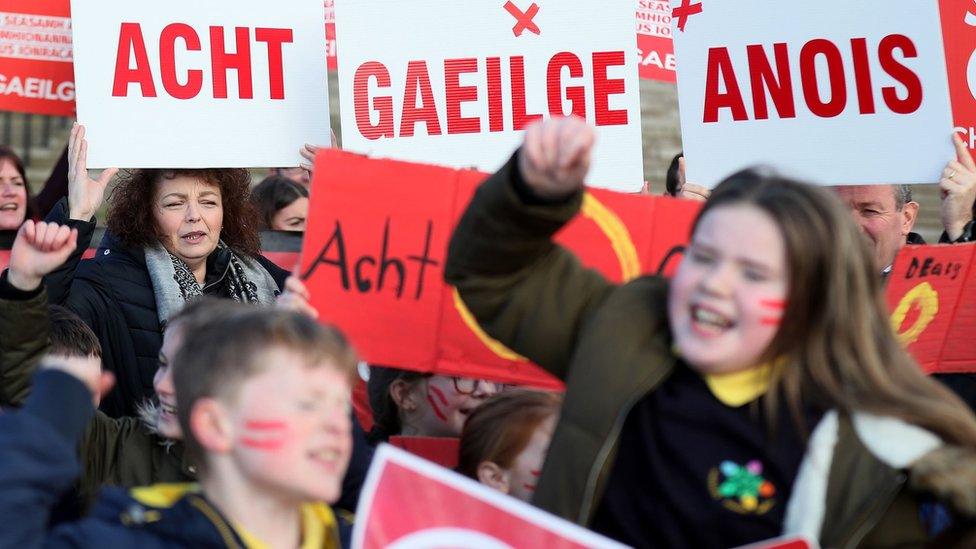
- Published28 June 2017
